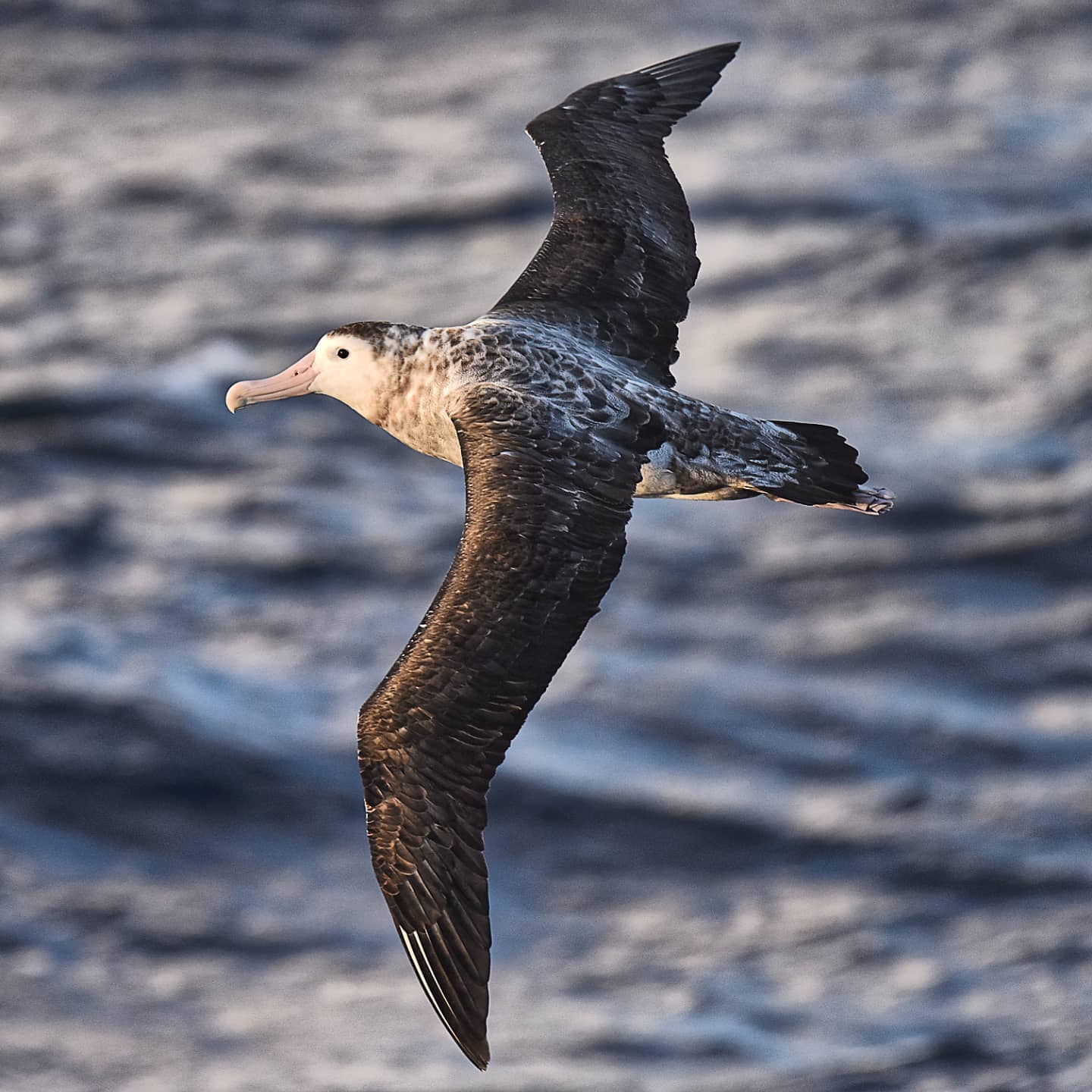 An Antipodean Albatross in flight; photograph by Jordan Shand
An Antipodean Albatross in flight; photograph by Jordan Shand
The Conservation Services Programme of New Zealand’s Department of Conservation have published a report by Graham Parker (Parker Conservation, Dunedin, New Zealand) and colleagues on the Endangered Antipodean Albatrosses of Antipodes Island.
The report’s Summary as follows:
The Antipodean wandering albatross Diomedea antipodensis antipodensis has been in decline since a population crash in 2005-07. Declining numbers appear to have been largely driven by high female mortality, but low chick production—with fewer birds breeding and reduced breeding success—has compounded the problem. To tease out the causes of falling numbers of Antipodean wandering albatrosses and identify the effectiveness of potential solutions, research includes an annual visit to the breeding grounds on Antipodes Island. This report describes the results of the field programme in the 2022/23 breeding season, and the preliminary findings from tracking of juveniles since January 2022.
There are some signs that the rate of decline might be slowing. The number of Antipodean wandering albatrosses breeding has been roughly stable for the past four seasons, and female survival shows some suggestion of improving since 2014 (4-year rolling averages), although it is still highly variable year to year. Breeding success in 2022 at 72% approached the average pre-crash nesting success of 74%, although the mean 2006–2022 rate remains comparatively low at 62%. However, the actual number of chicks produced remains small, even in good breeding-success years, since numbers nesting remain low. Recruitment is starting to draw from the (much smaller) cohorts produced since the crash, so population numbers will soon no longer be supplemented by higher recruitment rates seen over the past decade.
The population has been approximately stable for the last four years. However, there is so far no evidence of any sustained improvement in Antipodean wandering albatross demography, as required for the population to recover, with tentative improvements recorded here merely slowing the decline.
Recommendations include ongoing mark-recapture monitoring of demographic and population-size trends; an island-wide population size estimate; and research into causes of declines. More-targeted ongoing engagement is also needed, internationally and domestically, to achieve better bycatch mitigation in line with ACAP best practice.
Reference:
Parker G.C., Rexer-Huber K., Walker K., Elliott G. 2023. Antipodean wandering albatross population study 2023. Final report to the Department of Conservation. Parker Conservation, Dunedin. 21 p.
15 September 2023

 English
English  Français
Français  Español
Español